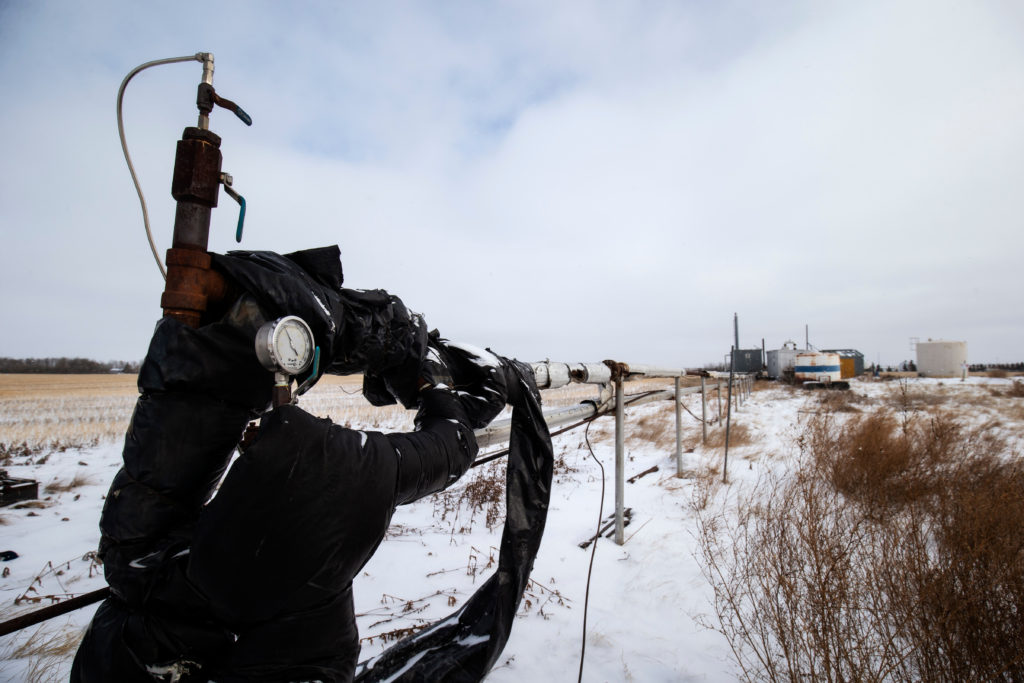Are Alberta's Oil Levies Enough To Cover Orphan Well Costs?

Table of Contents
The Growing Problem of Orphan Wells in Alberta
Orphan wells are abandoned oil and gas wells left behind by companies that have gone bankrupt or are otherwise unable to meet their reclamation obligations. These wells pose serious environmental hazards, including:
- Groundwater contamination: Leaking wells can contaminate groundwater sources with harmful chemicals.
- Greenhouse gas emissions: Abandoned wells can release methane, a potent greenhouse gas, contributing to climate change.
- Surface land degradation: Orphan wells can create surface hazards, impacting land use and potentially causing accidents.
The number of orphan wells in Alberta is steadily increasing. Several factors contribute to this growth:
- Bankruptcies in the energy sector: Economic downturns and fluctuating oil prices have led to numerous bankruptcies, leaving behind numerous orphaned wells.
- Inactive companies: Some companies, while not bankrupt, may have ceased operations, leaving their wells unreclaimed.
- Historical legacy: Many older wells lack adequate decommissioning plans, adding to the backlog.
The Alberta Energy Regulator (AER) tracks the number of orphan wells, and projections indicate a significant increase in the coming years, creating a mounting challenge for environmental remediation and sustainable resource management in the Alberta energy sector. The scale of this problem necessitates a thorough review of current funding mechanisms.
Alberta's Current Oil Levy System
Alberta's oil levy system is designed to fund the reclamation of orphan wells. The system operates through several mechanisms:
- Levies on oil and gas production: Companies operating in Alberta pay levies based on the volume of oil and gas they produce. These oil and gas levies are the primary funding source for the Orphan Well Association (OWA).
- Abandoned well liability: Companies are also responsible for the costs associated with reclaiming their own wells. However, in cases of bankruptcy or abandonment, the system steps in to manage cleanup efforts.
- Contingency fund: The system incorporates a contingency fund to address unexpected costs and fluctuating energy markets.
The Orphan Well Association (OWA) plays a crucial role in managing the funds collected through these Alberta oil and gas levies. The OWA is responsible for overseeing the reclamation of orphan wells, contracting with qualified companies, and ensuring environmental compliance.
Funding Mechanisms and Allocation
The OWA allocates funds based on a prioritized list of orphan wells, considering factors such as environmental risk and potential for further damage. Transparency and accountability are crucial aspects of the fund's management. However, the effectiveness of these processes is a frequent topic of discussion and scrutiny:
- Public reporting: The OWA publishes regular reports on its financial status and progress in reclaiming orphan wells, providing increased transparency.
- Audits: The OWA’s financial activities are subject to regular audits to ensure compliance with regulations and effective use of funds.
- Government oversight: The Alberta government plays an important role in overseeing the OWA's operations and ensuring that the levy system is functioning effectively.
Comparing Levies to Projected Orphan Well Costs
A critical aspect of this discussion is comparing the funds collected through Alberta's oil levies to the estimated costs of reclaiming all existing and projected orphan wells. While precise figures vary depending on factors like technological advancements and fluctuating oil prices, projections show a potential significant shortfall. This shortfall could have serious implications:
- Increased environmental risk: Delayed reclamation increases the risk of environmental damage.
- Increased taxpayer burden: A shortfall in funding could ultimately shift the financial burden to Alberta taxpayers.
- Impact on the energy sector: Concerns about funding shortfalls could make it more difficult to attract investment to the Alberta energy sector.
Charts and graphs comparing current levy collections with projected reclamation costs would visually illustrate this potential financial shortfall, highlighting the need for a robust funding model for orphan well reclamation efforts in Alberta.
Potential Solutions and Future Outlook
Addressing the potential funding gap requires a multi-pronged approach:
- Increased levies: A gradual increase in oil and gas levies could help close the funding gap, ensuring that the system is adequately funded for the long term.
- Government subsidies: Government subsidies may be necessary to supplement levy revenues, especially in the short term.
- Innovative cleanup technologies: Investing in research and development of more efficient and cost-effective reclamation technologies could reduce overall costs.
- Strengthened regulations: More stringent regulations could prevent future well abandonment and increase industry accountability for reclamation.
To ensure the long-term sustainability of Alberta's orphan well remediation program, improvements are needed. This may involve exploring alternative funding models, enhancing transparency, and encouraging innovation in the cleanup process, promoting a healthier environment and a more sustainable Alberta energy sector.
Conclusion: Addressing the Future of Alberta's Orphan Well Funding
The adequacy of Alberta's oil levies to cover orphan well costs is a complex issue with significant environmental and economic consequences. While the current system provides a framework for funding reclamation, projections indicate a potential funding gap. This gap raises concerns about the long-term sustainability of the program and could lead to increased environmental risks and taxpayer liability.
Ensuring sufficient funding for orphan well remediation is paramount. A proactive approach, involving adjustments to the levy system, government support, and technological innovation, is essential. Learn more about the challenges facing Alberta's orphan well fund and advocate for sustainable solutions to ensure adequate oil levies cover the costs of reclamation. The future of Alberta's environment and its energy sector depends on it.

Featured Posts
-
 Liverpool Verwachting Een Zee Van Oranje Voor Mogelijke Titel
May 29, 2025
Liverpool Verwachting Een Zee Van Oranje Voor Mogelijke Titel
May 29, 2025 -
 Ancelotti And Simeone React To Real Madrids 2 1 Victory Over Atletico
May 29, 2025
Ancelotti And Simeone React To Real Madrids 2 1 Victory Over Atletico
May 29, 2025 -
 Oxfam Novib Stedelijke Betrokkenheid Bij Het Verwerken Van Oorlogsverleden
May 29, 2025
Oxfam Novib Stedelijke Betrokkenheid Bij Het Verwerken Van Oorlogsverleden
May 29, 2025 -
 Zes Wissels Liverpool Southampton Regels En Redenen
May 29, 2025
Zes Wissels Liverpool Southampton Regels En Redenen
May 29, 2025 -
 Sally Hawkins Chilling Role In Bring Her Back A New Horror Film From The Talk To Me Creators
May 29, 2025
Sally Hawkins Chilling Role In Bring Her Back A New Horror Film From The Talk To Me Creators
May 29, 2025
